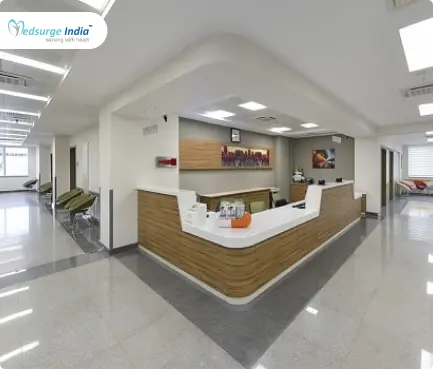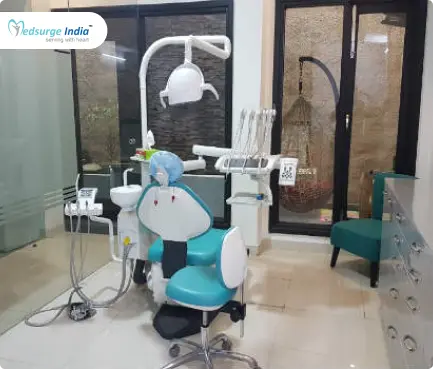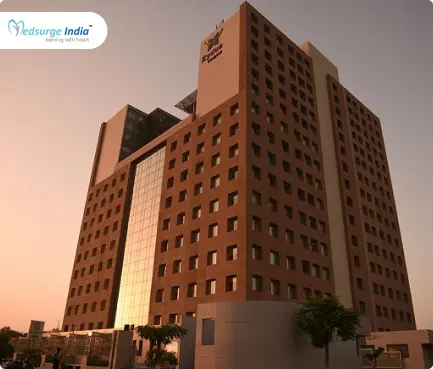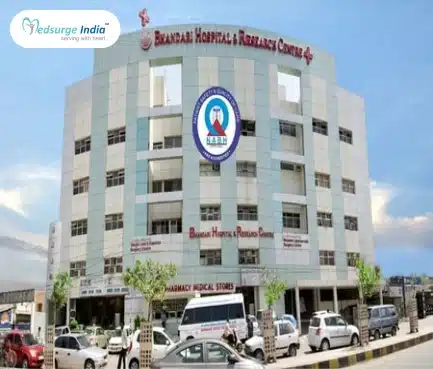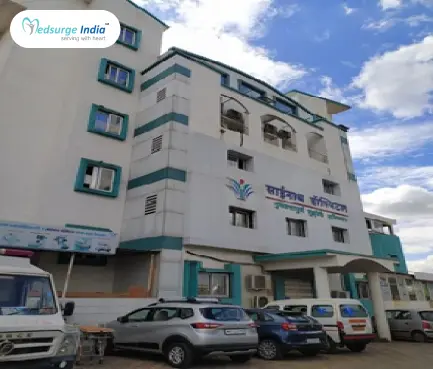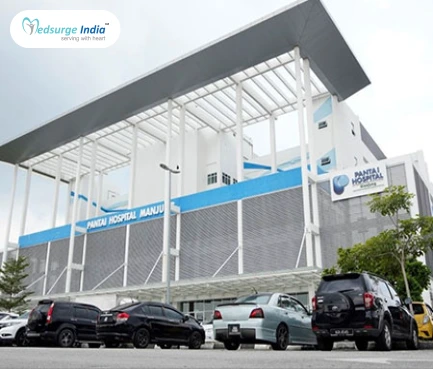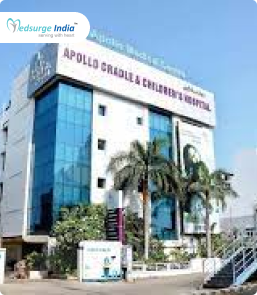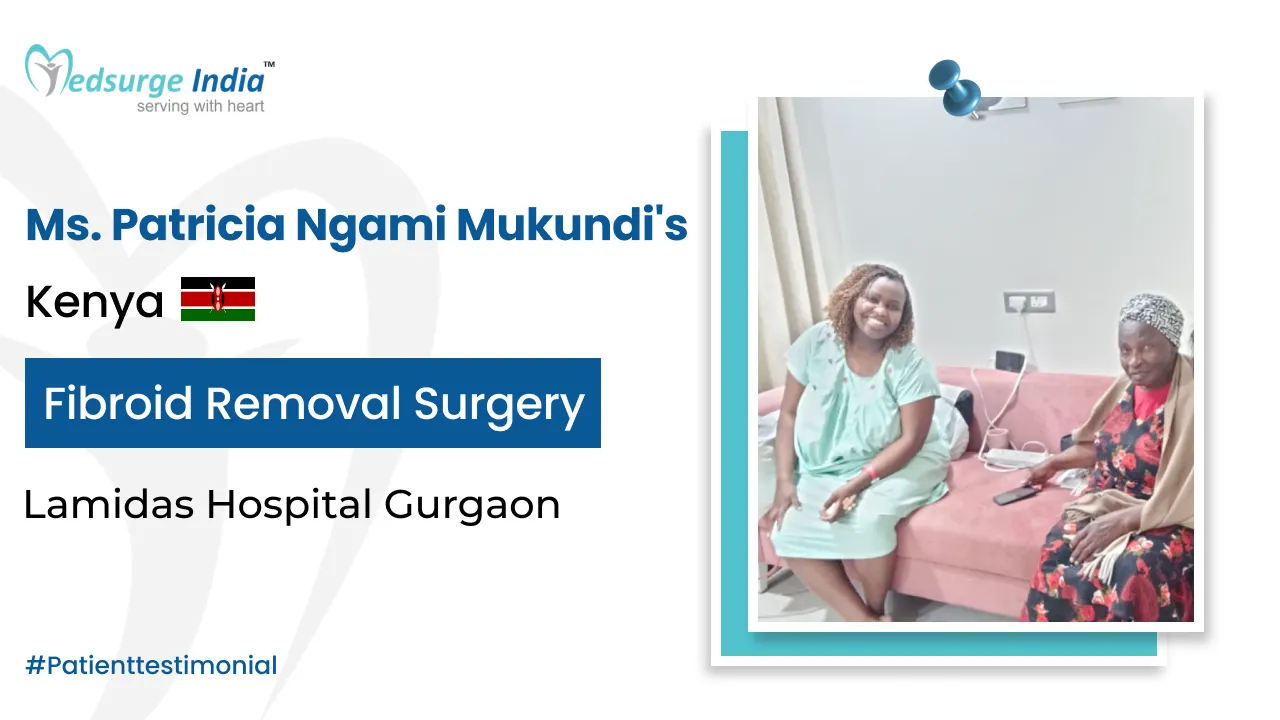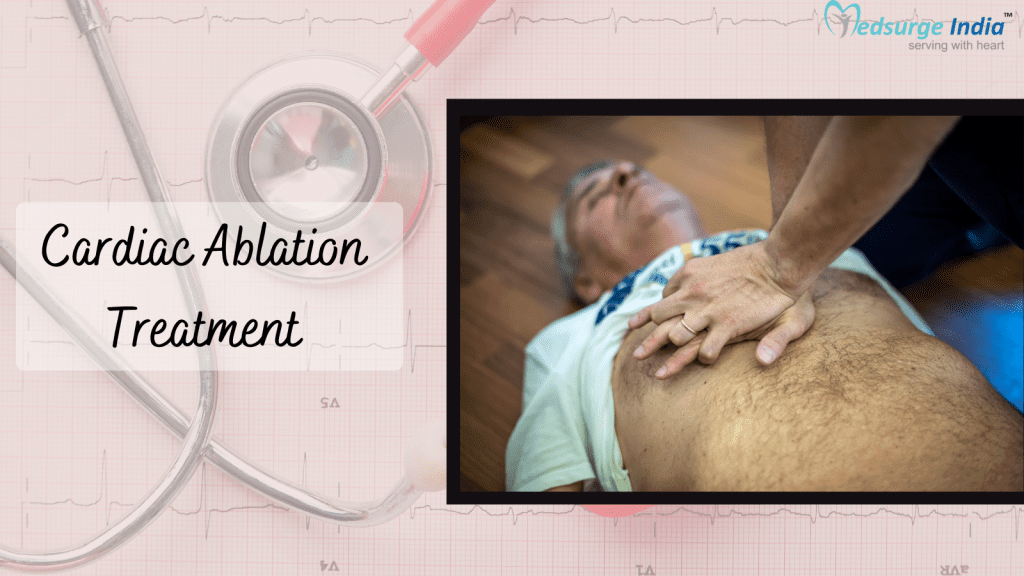
Cardiologists use a variety of cardiac ablation procedures to treat irregular or abnormal heart rhythms (arrhythmias). The most common type of minimally invasive heart ablation is catheter ablation. For those who are not good candidates for catheter ablation, heart ablation surgery may be required. Arrhythmias, which are disturbances in the heartbeat’s rhythm, rate, or both, can be treated with cardiac ablation surgery. The three main methods of cardiac ablation are catheter ablation, surgical ablation, and a hybrid treatment that combines the features of both. For ailments like A-fib and atrial flutter, these procedures are typically helpful. The Cost of Cardiac Ablation in India is affordable when compared to places like the United States, Africa, and Australia. Indian hospitals offer patients economical healthcare packages, high-quality machinery or equipment, and the certainty of great treatment quality and top-notch medical personnel.
What is a Cardiac Ablation and what are the Methods of Cardiac ablation?
Heart tissue is scarred using energy during this procedure. Often, doctors call this irregular pulse an arrhythmia, as they stop unusual electrical signals in the heart. In addition to treating an irregular heartbeat, cardiac ablation can also treat atrial fibrillation (AFib). Depending on the circumstances, your doctor may refer to this procedure as an atrial fibrillation ablation.
Cardiac ablation in India comes in a variety of forms, here are some below:
- Catheter ablation: In this method, the heart’s disruptive cells are removed by inserting long, thin tubes called catheters into the blood channels. The cells that produce arrhythmias are removed by healthcare facilities using a variety of methods, including, radio frequency produces heat and freezing.
- Surgical ablation: Ablation surgery, commonly referred to as maze surgery The Cox-maze or Trusted Source technique seeks to end atrial fibrillation (A-fib). It is a type of open-heart surgery that is frequently carried out concurrently with procedures for other heart issues, like valve replacement or heart bypass.
- Hybrid surgical-catheter ablation: Hybrid surgical-catheter ablation combines catheter ablation, which treats the inside of the heart, with the mini-maze procedure, which treats the outer layer of the heart.
Why is Cardiac Ablations Performed?
A cardiac ablation treatment in India is used to fix heart rhythm issues. The electrical impulses that cause the heart to beat must go along a particular path when they do so. An irregular heartbeat can result from any disturbance in the signaling pathway.
Cardiac ablation may be one of the initial therapies, depending on the type of heart rhythm issue. When other medications or treatments fail, they may also be used. Sometimes this procedure is performed on patients who have attempted unsuccessfully to cure an arrhythmia with drugs or possess some arrhythmias, like supraventricular tachycardia and Wolff-Parkinson-White syndrome, that are amenable to ablation.
Helpful – Cardiac Tumor Treatment Cost in India
What is the Purpose of Cardiac Ablation?
Cardiac ablation treatment in India is typically used by Interventional cardiac surgeons to address a variety of problems. These consist of:
- Supraventricular tachycardia (SVT): In order to block malfunctioning electrical signals and restore the heart rhythm, supraventricular tachycardia (SVT) ablation uses cold or heat radiation to create minute scars in the heart. Treatment for heart rhythm issues (arrhythmias) that affect the upper chambers of the heart and result in a rapid or irregular heartbeat includes SVT ablation (supraventricular tachycardia).
- Atrial flutter: The goal of atrial flutter ablation is to stop the electrical signals that cause a fluttering heartbeat by forming scar tissue inside the upper chamber of the heart.
- A-fib: The disorder known as A-fib results in erratic heartbeats in the upper heart chambers. This can result in an enlarged heart and raise the risk of heart failure and stroke. Patients with A-fib who do not improve on medication frequently elect to have cardiac ablation surgery.
- Other heart-related complications: Candidates undergoing cardiac ablation surgery are also likely to have arrhythmias that could result in potentially fatal consequences, such as heart attack.
Cardiac Ablation Treatment Cost in India
The Average Cardiac ablation treatment cost in India starts from INR 4.17 lakh ($5,000). The estimated cost of a cardiac ablation in India is far lower than in other developed countries such as the United States, the United Nations, Africa, and America. India is known as one of the top medical tourism countries in world as the nation not only provides affordable packages for patients but also have some of the top hospitals and doctors in the world, and their success rate is on par with well achieved countries. Also, it’s the main reason why patients from all over the globe come in search of medical treatment here in India.
Factors That Can Affect Cardiac Ablation Treatment Cost in India
Other factors that may also influence the cost of cardiac ablation in India include:
- The price of treatment packages.
- Doctor’s competence and experience in the subject.
- The patient’s situation.
- Duration of hospitalization and stay in the country.
- Need for post-operative care.
- Types of hospital room.
Get Free Cost Estimation
Procedure
What Takes Place Prior to Heart Ablation?
Cardiologists or cardiac surgeons carry out each and every cardiac ablation procedure in a hospital setting. Before determining which sort of cardiac ablation therapy is ideal, your doctor will perform a complete evaluation of your heart condition and general health.
Your doctor will give you detailed advice on how to get ready for the surgery. You might need to:
- Stop using drugs for arrhythmia or blood thinning (such as aspirin or warfarin). Follow your doctor’s instructions and only stop taking these drugs when instructed.
- Avoid eating or drinking the evening before your operation. You will receive detailed instructions from your provider.
- If your surgery is an outpatient one, make arrangements for someone to drive you home from the hospital.
What Are the Risks Associated of Cardiac Ablation?
In contrast to catheter ablation, surgical ablation has higher side effects on the heart. The following are possible dangers of cardiac ablation:
- cardiac arrest or a stroke
- a narrowing of the veins that connect your heart and lungs
- dye damage to the kidneys
- Radiation
- Death
- Infection or bleeding where the catheter was inserted
- if the catheter scrapes them, damaged blood vessels
- Arrhythmias brought on by electrical system damage to your heart
- lungs or legs with blood clots
- Heart injuries, such as holes or faulty valves
What Advantages Does Cardiac Ablation Offer?
Cardiac ablation can save your life if your arrhythmia is uncontrollable by medicines. Catheter ablation is often possible. The hazards of this minimally invasive technique are lower. The success rates of heart ablation are high. Most people’s natural heart rhythms are restored after cardiac ablation. Usually, it does away with the requirement for antiarrhythmic drugs.
How Can Medsurge India Help?
Medsurge India is a prestigious support system for patients looking for doctors, hospitals, and specialized treatments. We’ll find the most suitable medical options for you. Regarding your medical issues, our team will give you a list of certified, reputable, and trusted doctors and hospitals. Additionally, we offer a treatment strategy that fits your budget. Apart, we assist patients with obtaining travel authorizations, medical visas, and a multitude of other things.
The Most Important Frequently Asked Questions
Q: What Are the Risks and Side Effects of Heart Ablation Surgery, and How Serious Is It?
A: Although they are rare, there are serious risks associated with ablation. Stroke and death are among them. If ablation does not work the first time, it may be necessary to repeat the procedure.
Q: Is Cardiac Ablation a Painful Procedure?
A: The majority of people do not experience any discomfort during the procedure. You may experience mild chest discomfort. Your doctor will remove the guide wire and catheters from your chest after the ablation is completed.
Q: Are You Sedated During an Ablation?
A: Because your movement will be restricted during the ablation procedure, you will be given anesthesia medication. Deep sedation or general sedation, which puts you to sleep, is the most commonly used method of anesthesia.
Q: Is a Urinary Catheter Required for Cardiac Ablation?
A: After the subject has been sedated, a bladder catheter will be inserted before the ablation procedure begins. Subjects will be asked if they experienced any of the following complications, based on patient-reported outcomes: cystitis, hematuria, dysuria, urethral damage, and urinary retention.
Q: Who Should Consider Cardiac Ablation?
A: People suffering from heart disease. Ablation may be recommended by doctors for people who are at high risk of afib complications such as sudden cardiac arrest.
Top Hospitals for Cardiac Ablation Treatment In India
Top Doctors for Cardiology And Cardiac Surgery
Dr. Rajnish Sardana
Senior Consultant , MBBS, MD, DM
Experience: 19 years of experience
Noida , India
Dr. R. D. Yadav
Senior Consultant
Experience: 30 years of experience
Batra Hospital & Medical Research Centre, New Delhi
New Delhi, India
Dr. K K Saxena
Senior Consultant
Experience: 43 Years of experiences
Indraprastha Apollo, New Delhi
New Delhi, India
Dr. Koushik Dasgupta
Senior Consultant
Experience: 12+ years of experience
NH Rabindranath Tagore International Institute of Cardiac Sciences, Kolkata
Kolkata, India
Dr. Dhiman Kahali
Director
Experience: 33 years of experience
BM Birla Heart Research Centre Kolkata
Kolkata, India
Dr. Rajesh Bhat U
Senior Consultant
Experience: 14+ years of experience
KMC Hospital, Hampankatta, Mangaluru
Mangaluru, India
Dr. Sharath Parameshagouda Sanganagoudar
Senior Consultant
Experience: 15+ years of experience
Sahyadri Narayana Multispeciality Hospital, Harakere, Shimoga
Shimoga, India
Dr. Shalin Thakore
M.D.(D.M. CARDIOLOGY)
Experience: 29 Years of experience
Shalby Hospital, Ahemdabad, India
Ahemdabad, India
Dr. S.S Murthy
Senior Consultant
Experience: 18 years of experience
Fortis Escorts Hospital New Delhi
Gurgaon, India
Dr. Anto Sahayaraj R
Senior Consultant
Experience: 25 years of experience
Fortis Malar Hospital ,Chennai
Chennai, India
Dr. Upadhyayula Satyanarayana
Consultant
Experience: 10 years of experience
Medanta – The Medicity, Gurgaon
Gurgaon, India
Dr. Anupam Kumar Singh
Consultant
Experience: 11 years of experience
Bhagwan Mahavir Medica Superspecialty Hospital Ranchi
Ranchi, India

